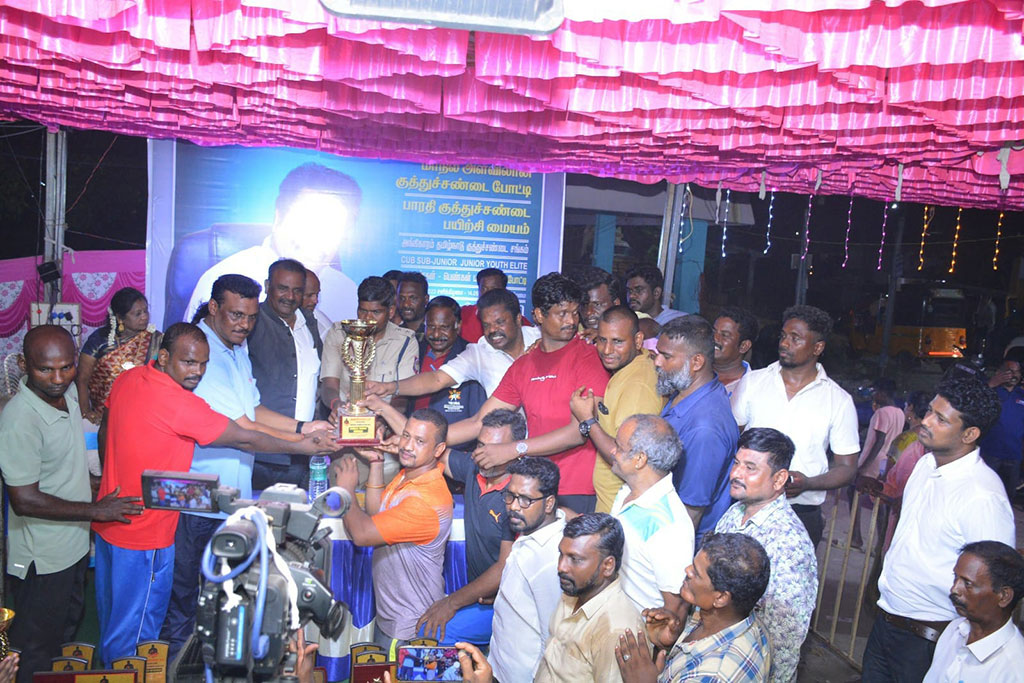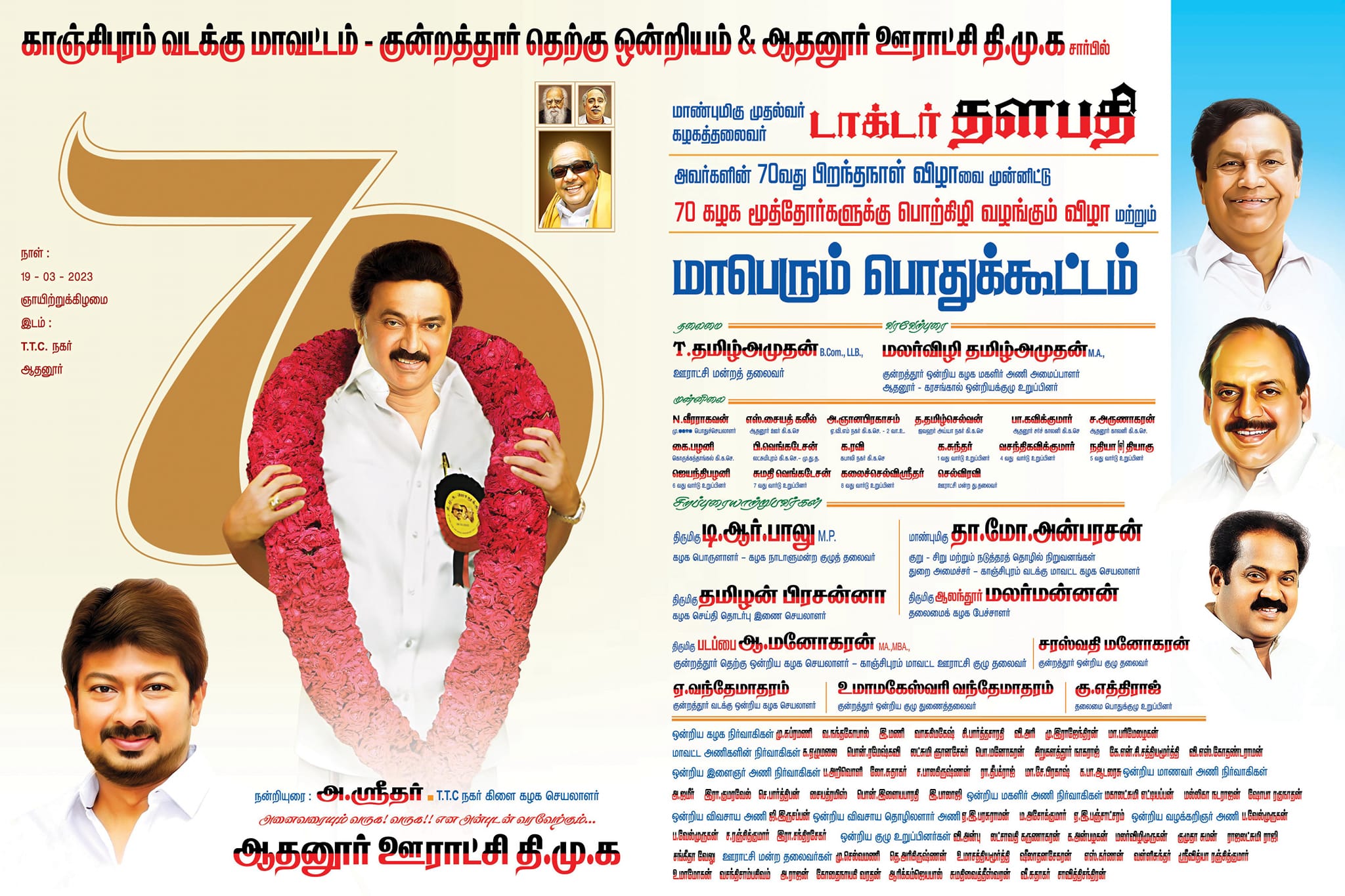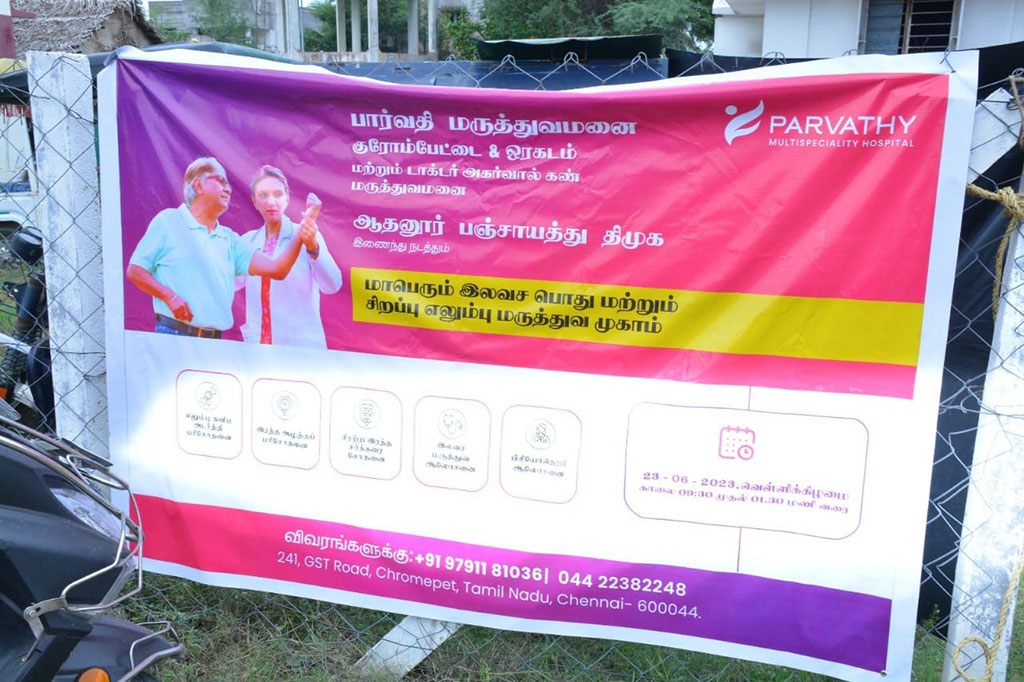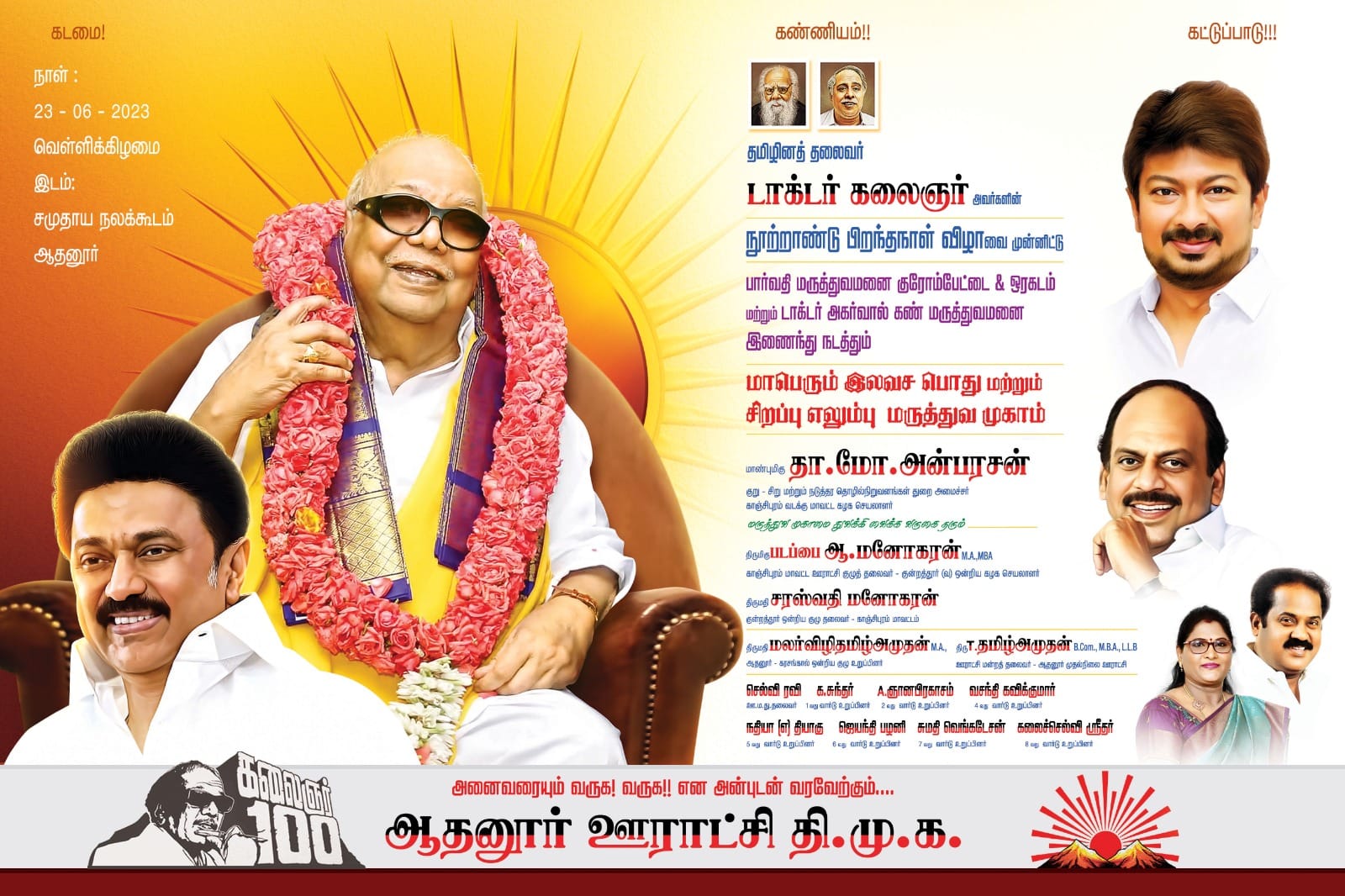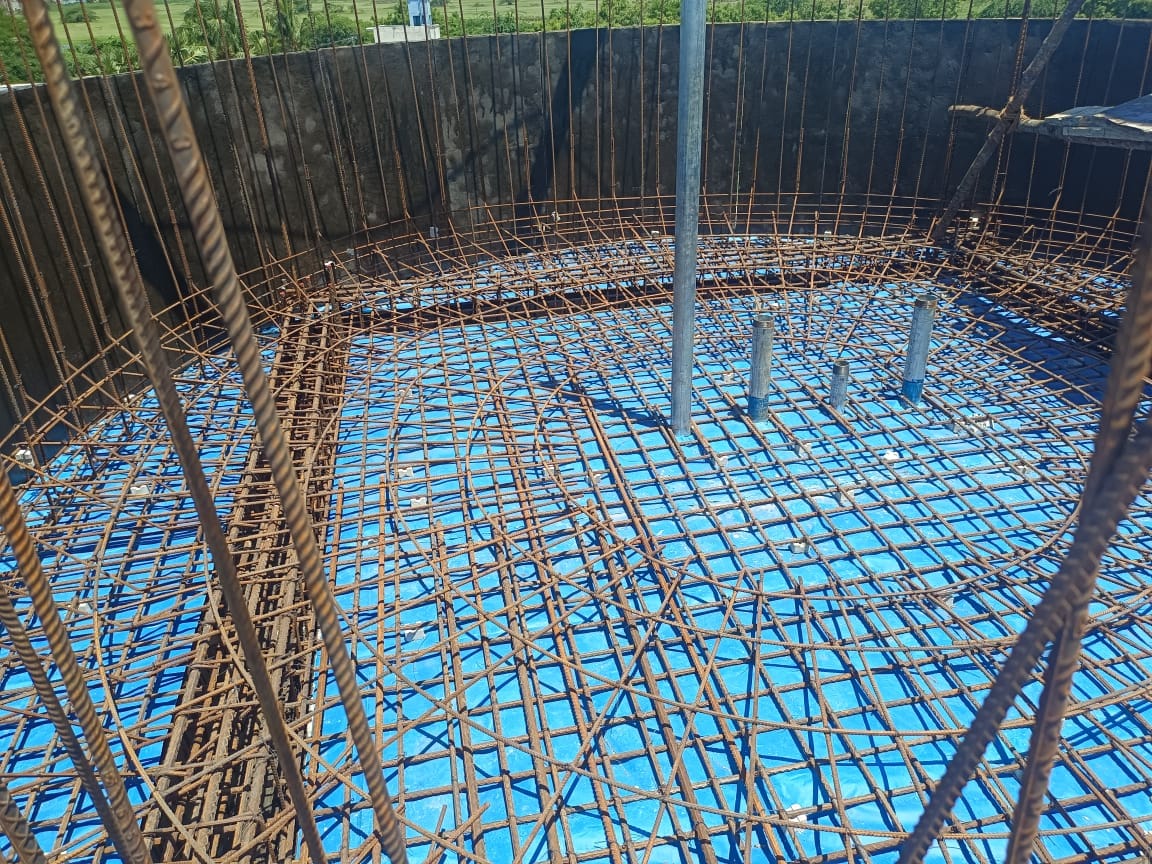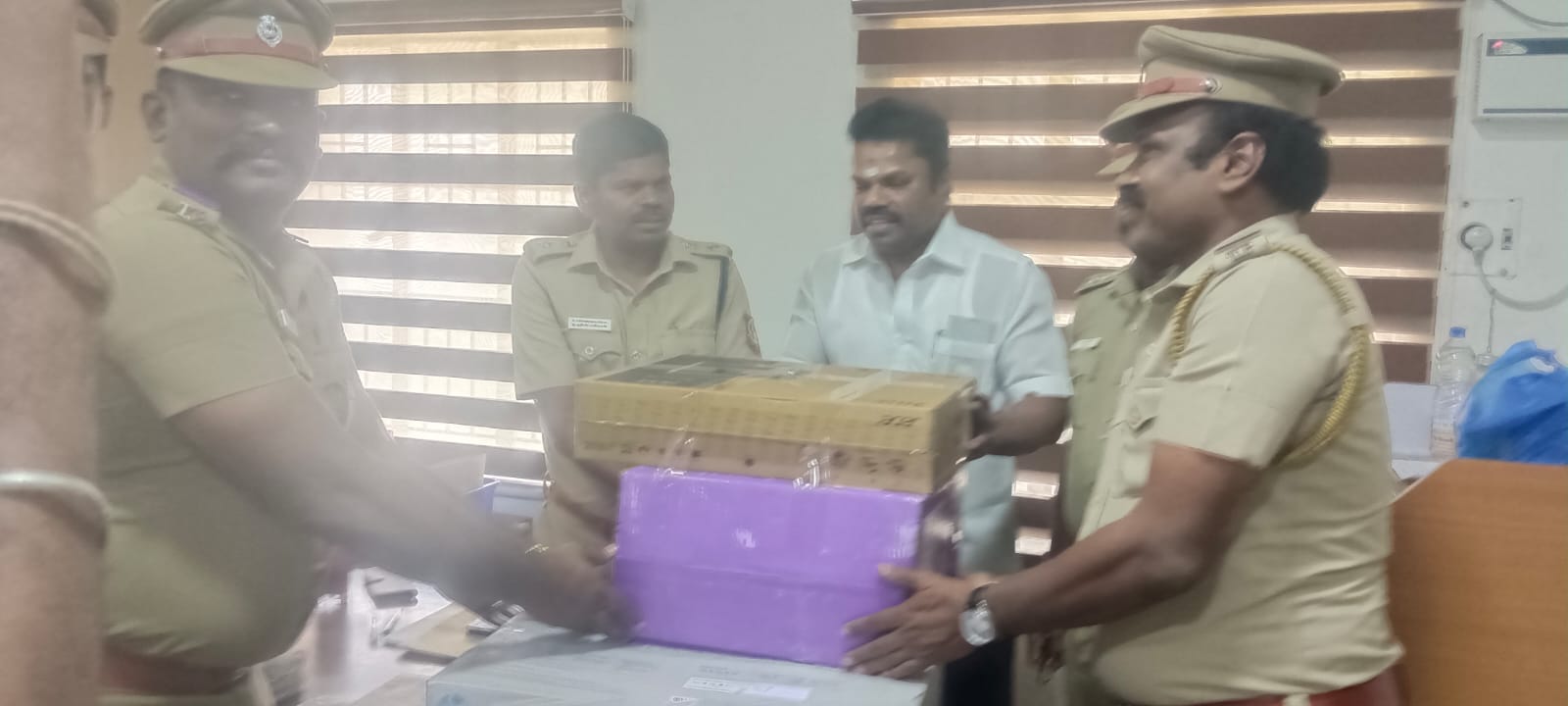


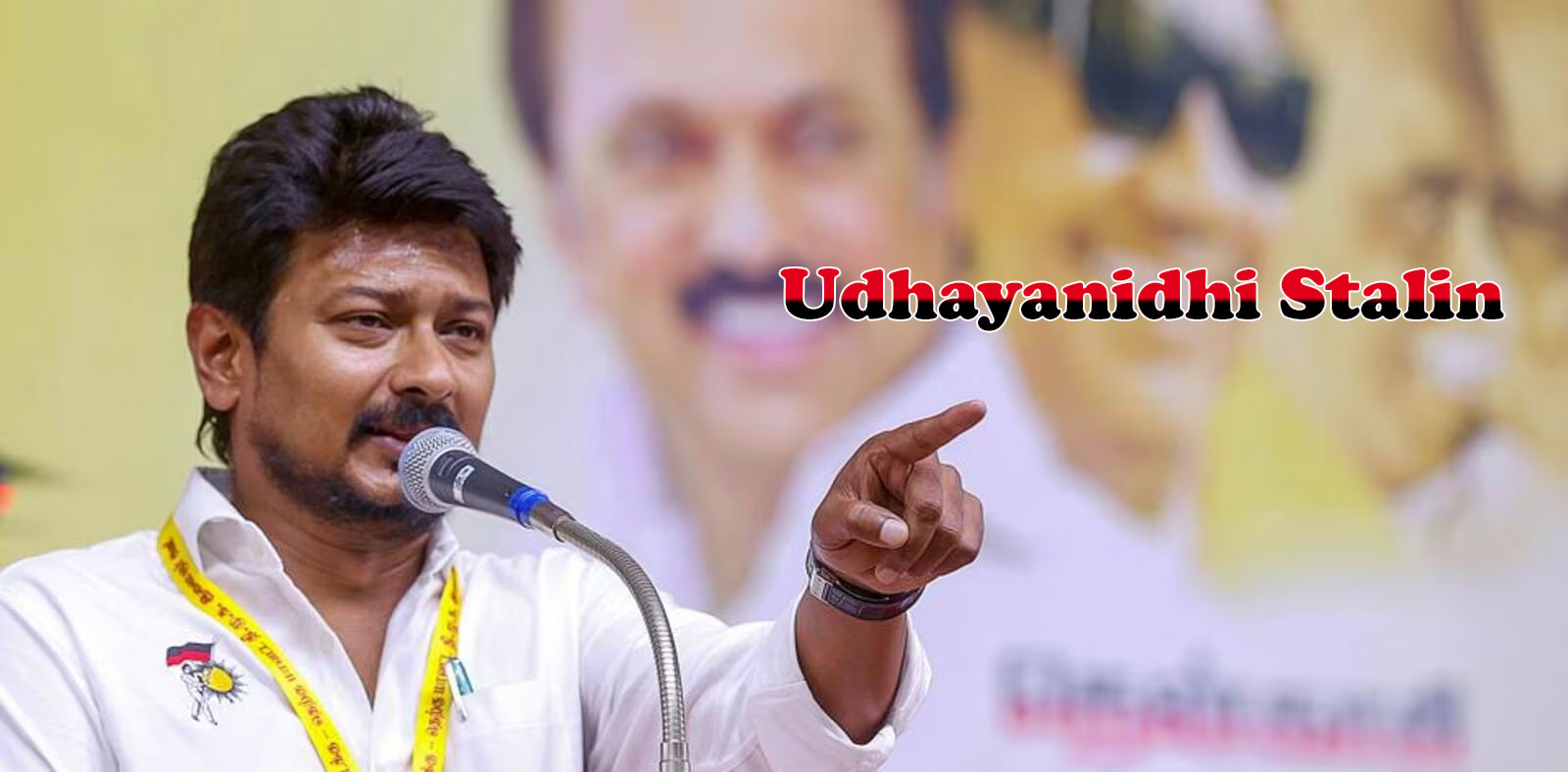

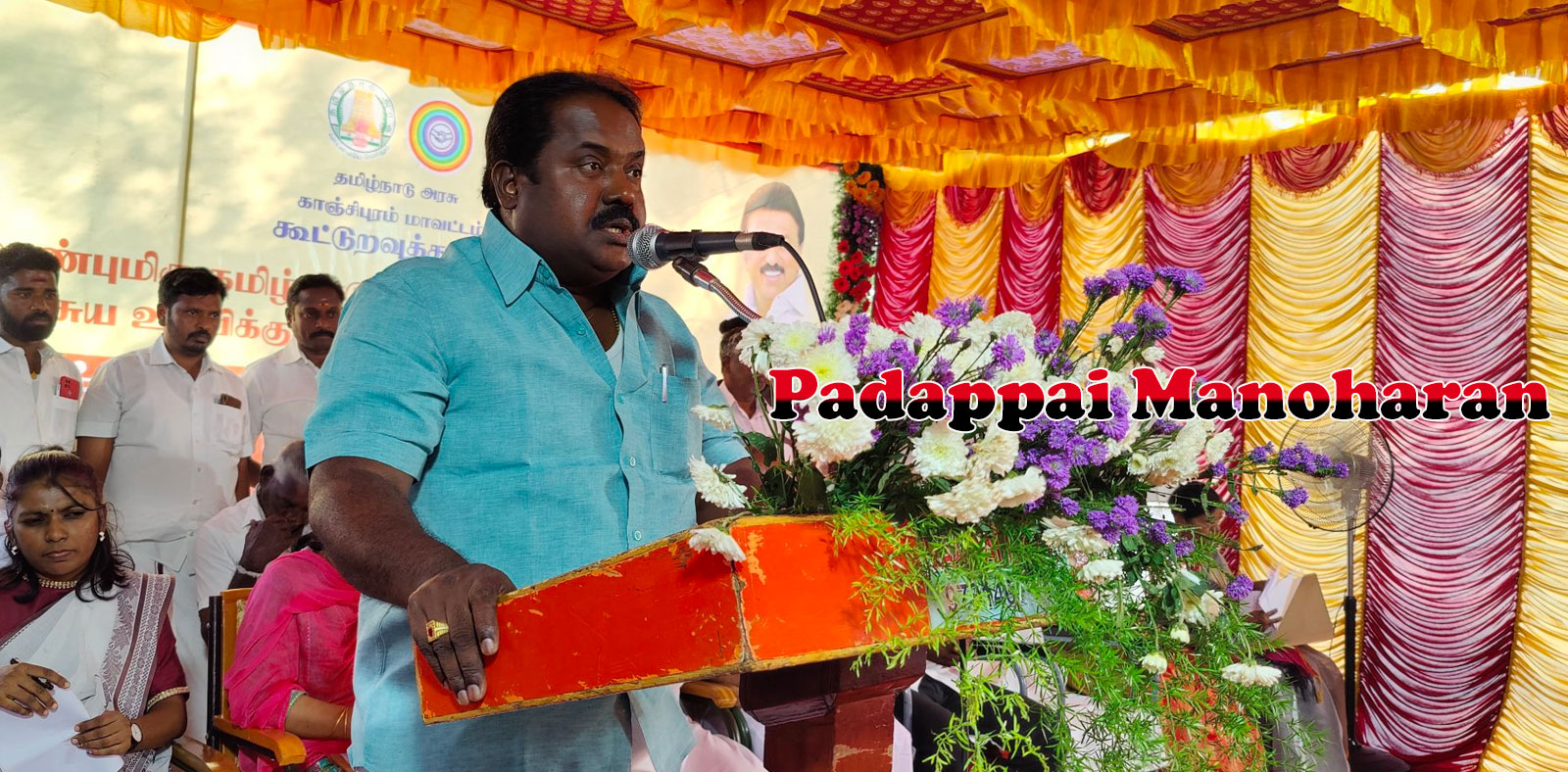

DRAVIDIAN MODEL
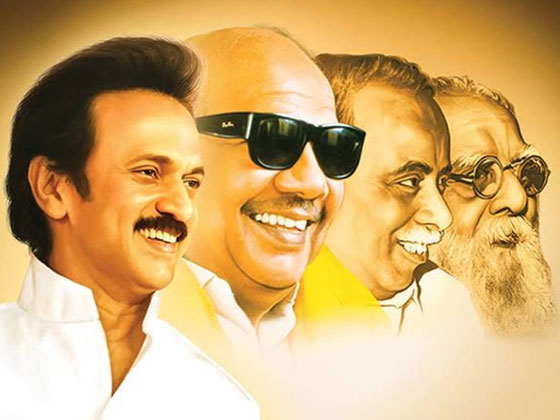
TIMELINE
-
Thanthai Periyar
(1924 – 1973) -
Perarignar Anna
(1935 – 1969) -
Muthamizharignar Kalaignar
(1938 – 2018) -
Thalapathy
(1968 – Present)
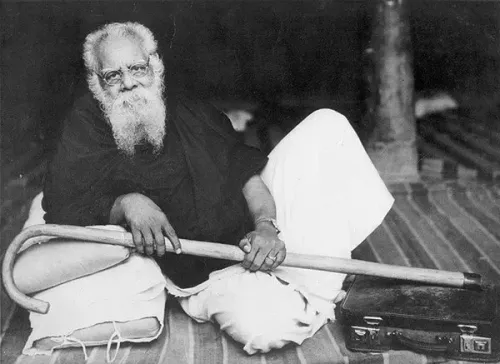

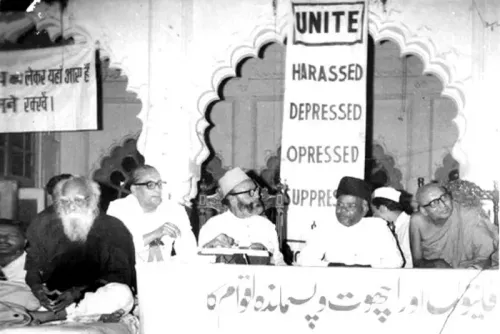
Thanthai Periyar's Self-Respect movement aimed to empower oppressed castes and encourage self-respect in a caste-based society. Founded by S. Ramanathan in 1925, it was led by Periyar from 1926 in Tamil Nadu and had an influence overseas in countries like Malaysia and Singapore.
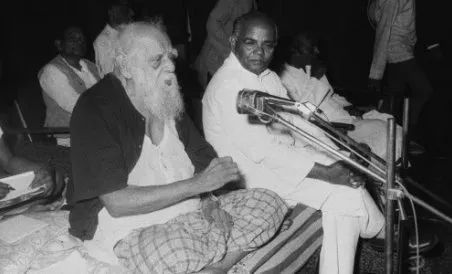
Thanthai Periyar led Anti-Hindi agitations in Tamil Nadu in 1930s-40s, as he saw it as a threat to Tamil language and culture. He started "Kudiyarasu" Tamil newspaper, protested and rallied for Tamil language rights. His efforts led to making English the official language along with Hindi in the Indian constitution.

Thanthai Periyar formed 'Dravidar Kazhagam' by merging the Justice Party and Self-Respect Movement. It aimed to create a Dravidian nation called Dravida Nadu comprising areas of Madras Presidency and adjoining areas. The movement was not a political party and focused on promoting Dravidian culture and identity.

Thanthai Periyar advocated for the retention of English as the Union Official Language at the All India Official Language Conference and later travelled to North India to promote the eradication of the caste system. In his final meeting at Chennai, he called for action to achieve social equality and dignity. He died at the age of 95 in 1973.

Perarignar Anna supported an independent Dravida Nadu during his time in Dravida Kazhagam but changed it to independent Tamil Nadu for Tamils after the reorganization of states. During later years, Anna aimed at better cooperation among southern states and claimed more autonomy for Tamil Nadu.

Several disagreements between Thanthai Periyar and his followers led to a split in 1949, with Perarignar Anna and others leaving Dravidar Kazhagam. This led to the formation of the Dravida Munnetra Kazhagam (DMK), which focused on promoting Tamil identity, regional autonomy, and social justice, while incorporating Periyar's principles.

The 1957 legislative assembly election marked DMK's debut in electoral politics. The party campaigned for Tamil identity, social justice, and opposed Brahmin domination. Led by Perarignar Anna, DMK's impressive performance was a milestone in Tamil Nadu politics, paving the way for its continued success.

DMK organized an anti-Hindi conference on 21 Sep 1957, followed by "anti-Hindi Day" on 13 Oct. The party opposed the imposition of Hindi and rejected the "numerical superiority of Hindi" argument. Perarignar Anna compared it to choosing the crow over the peacock as the national bird based on numerical superiority.
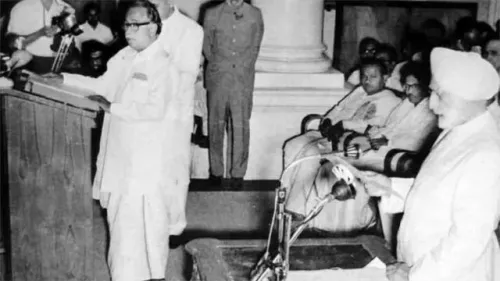
DMK, led by Perarignar Anna opposed Hindi imposition. A party conference led to Nehru's assurance on English as official language. When Hindi was declared national language in 1965, Annadurai declared a day of mourning. This stance propelled DMK to victory in 1967, with Perarignar Anna as Tamil Nadu's Chief Minister, a pivotal moment for the party.
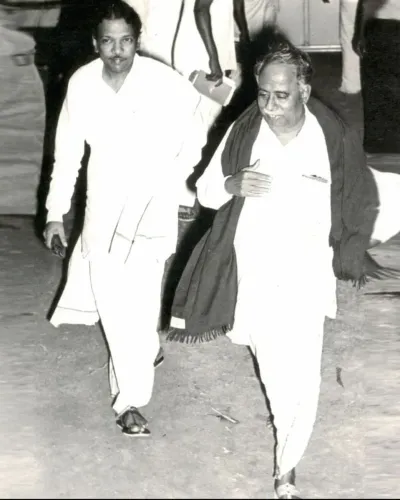
Perarignar Anna government implemented a two-language policy in Tamil Nadu, replacing the then-popular three language formula that included Hindi. Students were entitled to study the state language and English under the new policy.
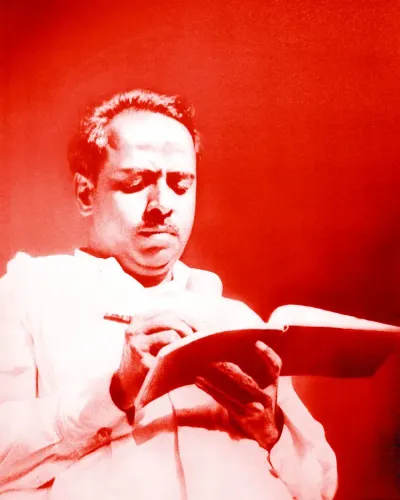
Perarignar Anna revolutionary move legalizing Self-respect marriages in Tamil Nadu through section 7A under the Hindu Marriage Act (Madras Amendment) Act, challenged the caste system and promoted social equality by allowing Suyamariyathai and Seerthiruttha marriages to be legally solemnized without priests or Brahmins.

It was Perarignar Anna government which renamed Madras State to Tamil Nadu, signifying state's unique Tamil identity. The renaming bill was introduced and passed by the state assembly during his tenure as chief minister,after an unsuccessful attempt in the Parliament. This move helped foster a sense of pride and unity among the people of Tamil Nadu

Kalaignar began his political journey at 14, inspired by Pattukottai Azhagiri's speech of the Justice Party and participated in Anti-Hindi agitations, where he organized demonstrations opposing mandatory Hindi-education in schools, travelling around Tiruvarur.

Kalaignar's Kallakudi protest at age 29, was pivotal. The town's renaming to "Dalmiapuram" was an affront to Tamil culture. In a peaceful demonstration, he erased the name from the station and despite his six-month jail term, his actions earned him admiration and consolidated his position in the Dravidian movement.

Kalaignar's early political success paved the way for his decades-long legacy. He secured 45 of 90 wins in the 1959 Madras Municipal Corporation campaigns and won a second term as DMK treasurer. Beyond politics, he maintained a personal connection with his cadres through daily letters for 50 years, addressing them as ‘ Udanpirappugal’.
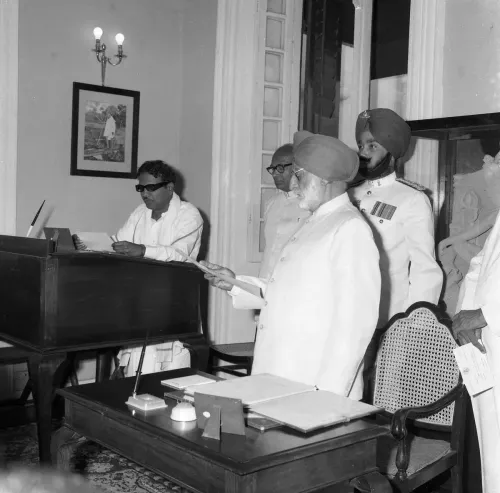
Kalaignar became Chief Minister of TN after Perarignar Anna's demise. He established TN Slum Clearance Board, proposed the Land Reforms Act, Sattanathan commission for backward classes, granted legal status to self respect mariages. His advocacy for state autonomy succeeded in allowing the state to raise its flag, a practice continuing to this day.
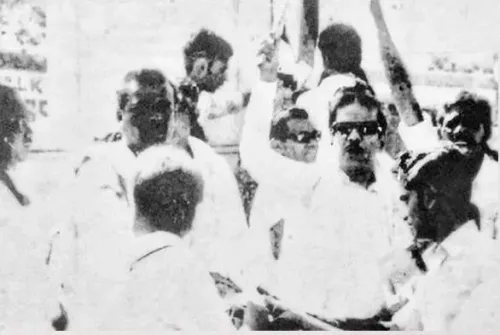
Kalaignar resisted Emergency in Tamil Nadu, supported Jayaprakash Narayan's anti-Emergency campaign, but was ousted 50 days before his term ended. 25,000 party members were imprisoned under MISA, and aid was provided to them and their families. No corruption evidence found by Sarkaria commission.
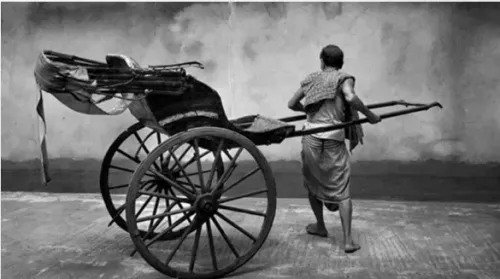
Kalaignar accelerated the IT revolution, eliminated caste-based segregation with Samathuvapuram, helped farmers through Uzhavar Sandhai. He introduced free education, phased out hand-pulled rickshaws, and marriage assistance scheme while spearheading several infrastructure projects including Tidel Park, Coimbatore flyover among others.
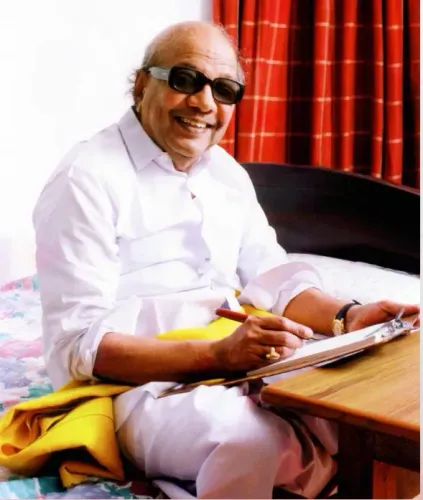
Kalaignar introduced a 3% reservation quota for the marginalized Arunthathiyar community in Tamil Nadu, improving their access to education and employment. His policy reflected a commitment to social justice, inclusivity, and creating a more equitable society.
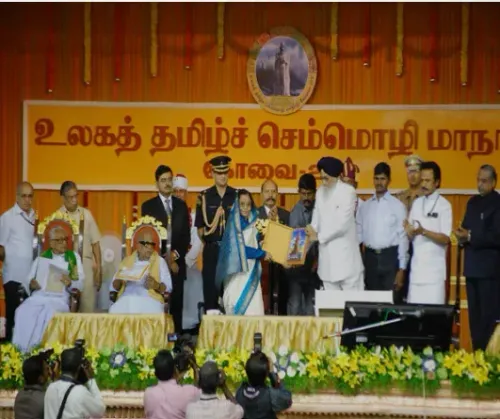
Tamil Semmozhi Maanadu, World Classical Tamil Conference, was a momentous event celebrating Tamil language, chaired by Kalaignar, it brought Tamil people worldwide, discussing and honoring the language. With a budget of 500 crores, his dedication made this grand gathering a reality, promoting the glory of Tamil.
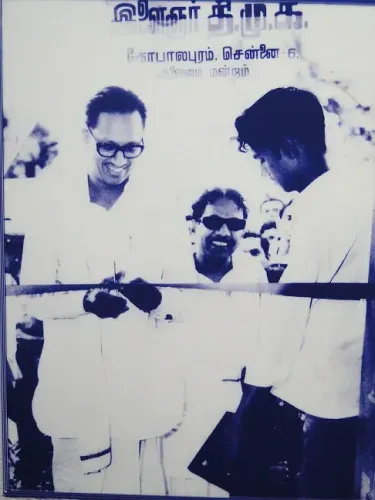
Thalapathy founded Gopalapuram Youth Wing at a barber shop, reflecting his grassroots approach to establishing a youth platform. From this modest beginning, the Youth Wing grew into a significant force, shaping the political landscape and championing younger generation's aspirations.

Thalapathy's arrest under MISA was a defining moment. Despite brutal treatment, he pursued education and completed his BA exams while in custody. His arrest symbolized his fight for democratic values and opposition to oppressive regimes. This episode shaped his political career, highlighting his unwavering commitment to justice and freedom.
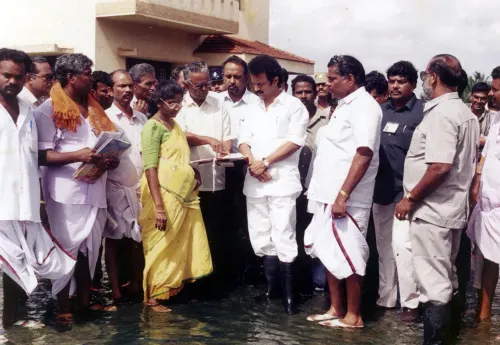
Thalapathy's remarkable MLA journey, with wins from Thousand Lights and consecutive triumphs in Kolathur, showcases his enduring impact and effective leadership in Tamil Nadu. His electoral successes reflect strong support, grassroots connection, and administrative capabilities.
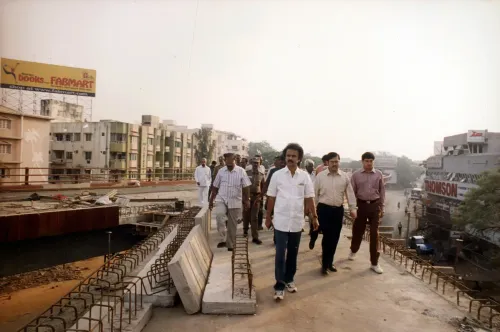
Thalapathy's historic mayoral tenure in Chennai, serving two terms, brought infrastructure advancements with Singara Chennai. He modernized garbage disposal, improved healthcare, schools, and public infrastructure. Flyovers reduced congestion, parks flourished, and the eco-friendly Perambur slaughterhouse transformed.

Thalapathy's pivotal role in the 2006 Assembly Elections secured the DMK's victory. As Minister for Rural Development and Local Administration, he expanded Women Self-Help Groups (1,75,493 established) and led major drinking water projects like Hogenakkal and Ramanathapuram schemes.
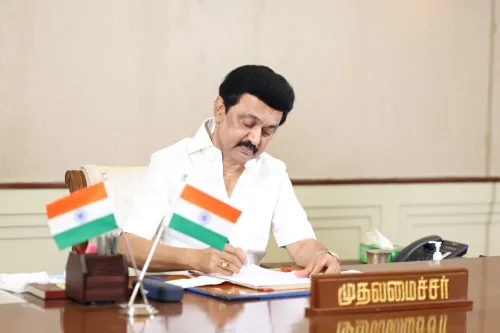
Thalapathy, as Chief Minister of Tamil Nadu, led the victorious Secular Progressive Alliance. He responded swiftly to the pandemic, prioritized economic recovery, social justice, and withdrew cases filed against protestors and journalists during the previous regime.

Thalapathy initiated Ungal Thoguthiyil Mudhalamaichar for grievance redressal, Free Bus Travel for Women, Makkalai Thedi Maruthuvam, Agricultural budget, and transforming wasteland. Key initiatives include 'Illam Thedi Kalvi', 'Innuyir Kappom-Nammai Kakkum 48' for accident victims, and 'CM Dashboard Monitoring System' for efficient governance.

Thalapathy initiated 'Naan Mudhalvan' for youth empowerment, Green Tamil Nadu Mission for more green cover, 'Pudhumai Penn' to support female students' education, Chief Minister's Breakfast Scheme for fighting malnutrition, Governing Council on Climate Change for sustainability. Tamil Nadu leads in combating climate change with various missions

About Tamilamuthan
I am Tamil Amudhan, and I am proud to serve as the elected Panchayat President for Adhanur Village, Chennai, representing the DMK (Dravida Munnetra Kazhagam) party. My journey in public service has been driven by a deep commitment to the welfare and progress of the people of Adhanur.
In my role as the Panchayat President, my primary focus has been on serving the people of Adhanur Village diligently and addressing their concerns promptly. I firmly believe that by enhancing the overall quality of life in our community, we can pave the way for a brighter future.
Our Gallery

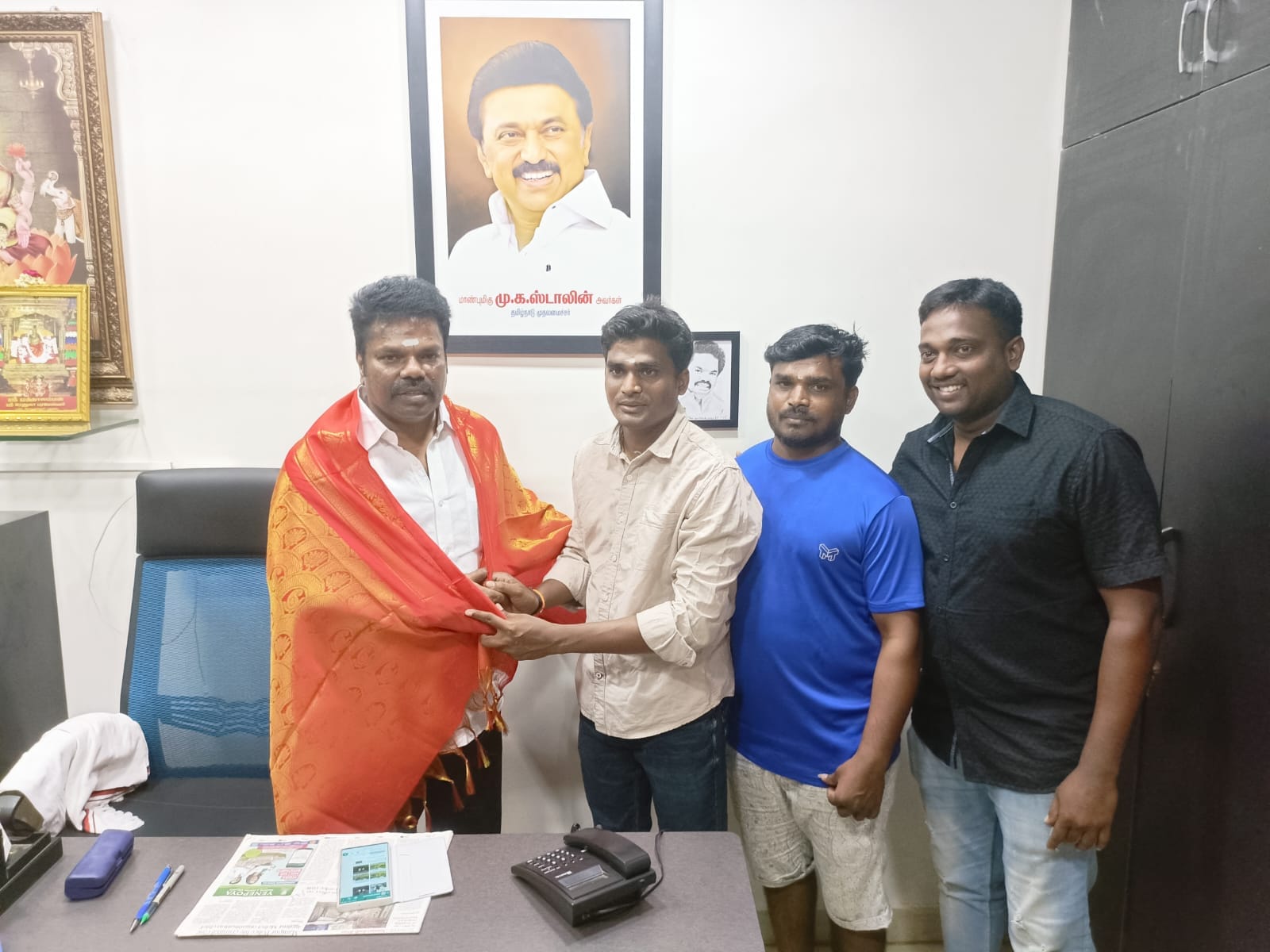

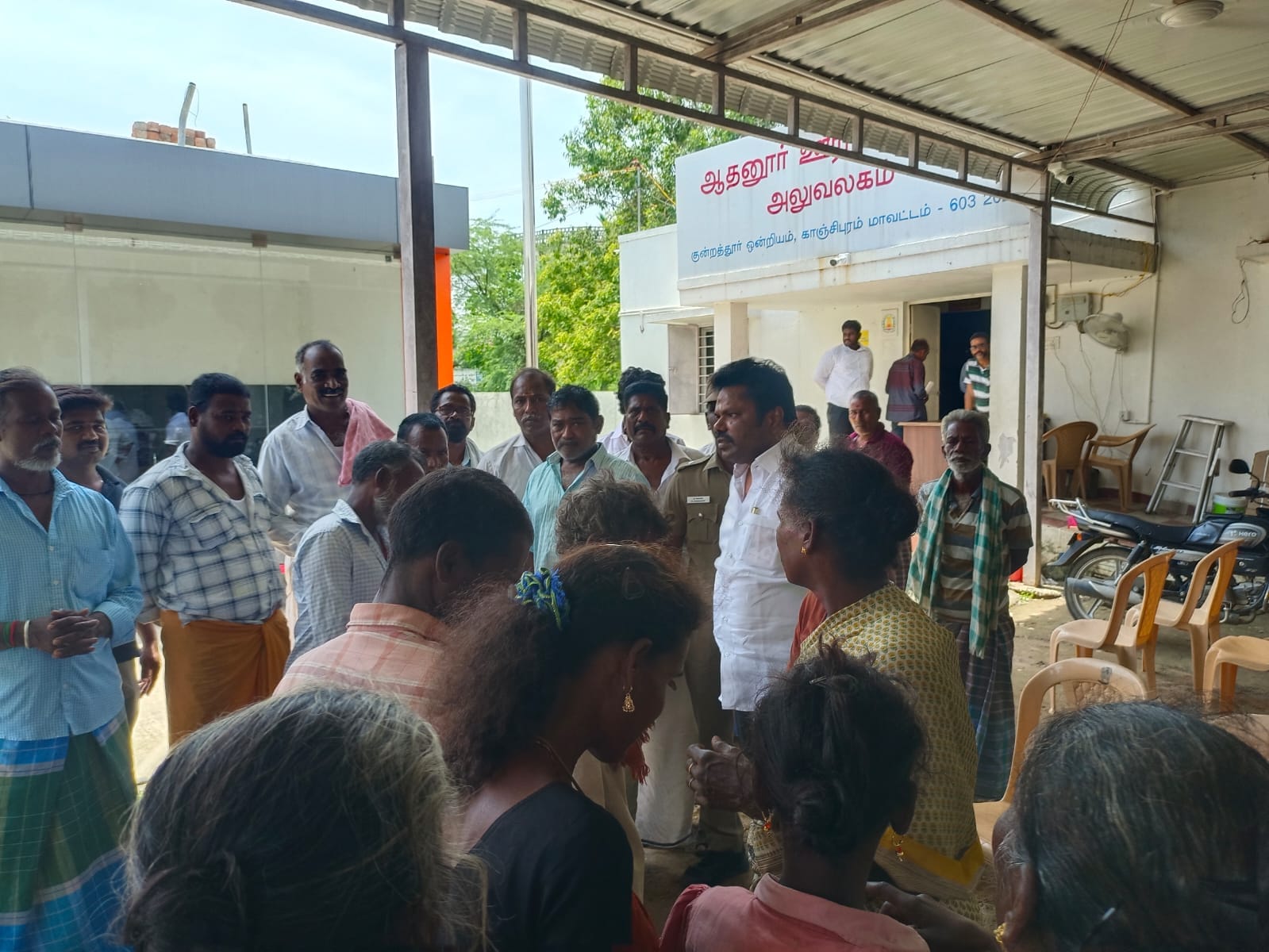
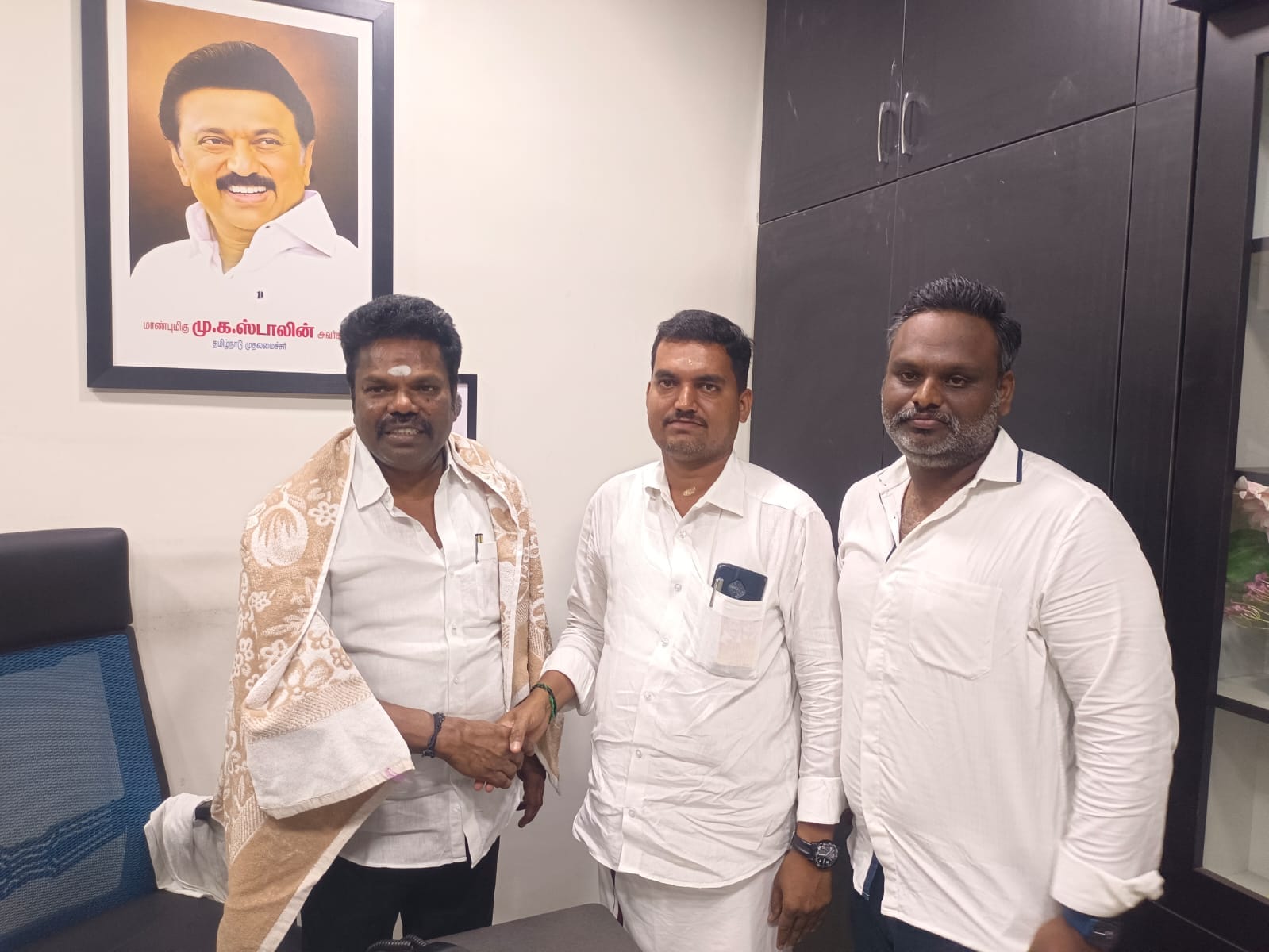
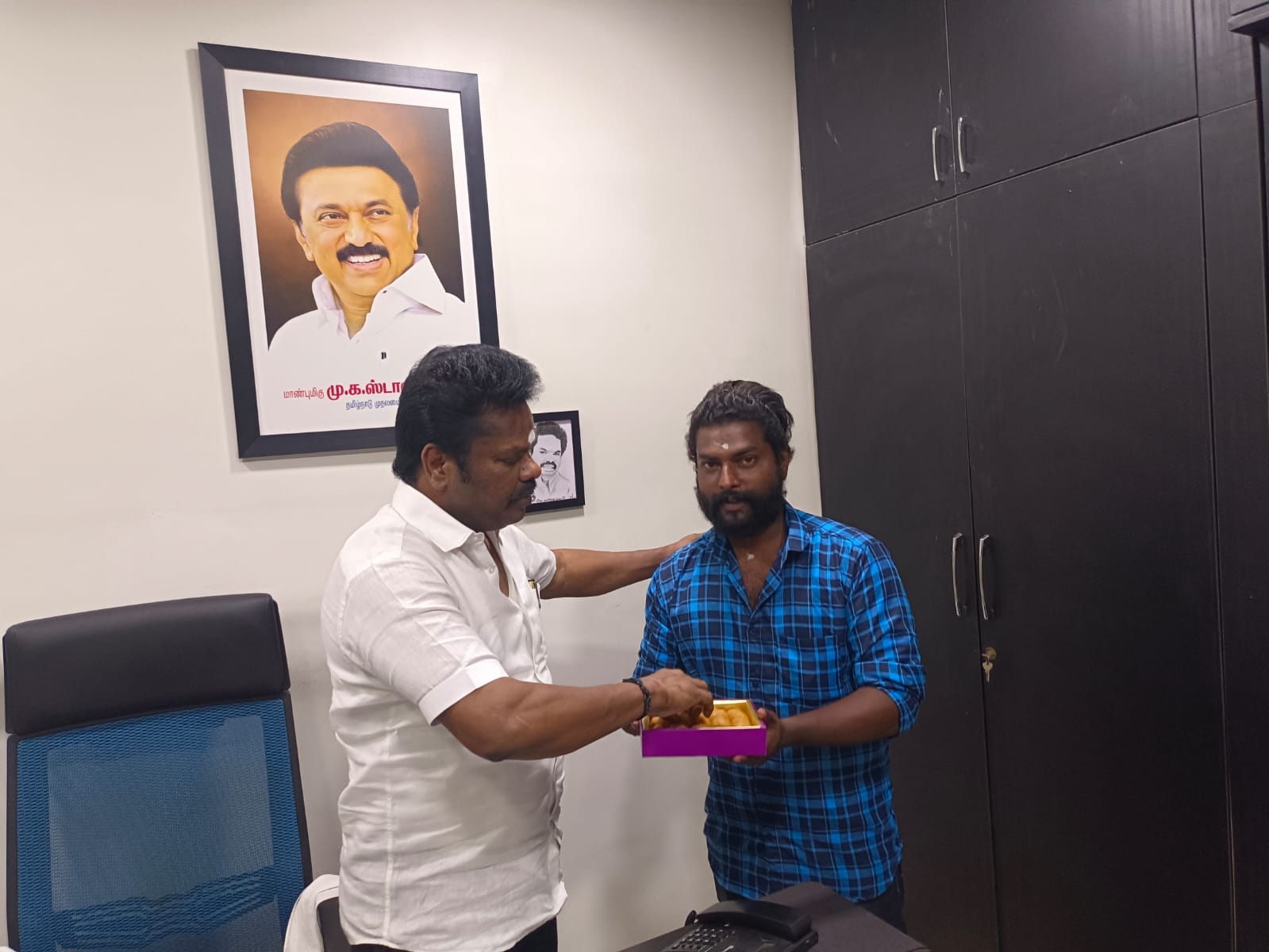
Join Us



